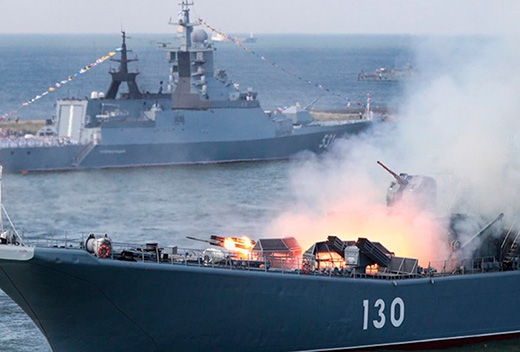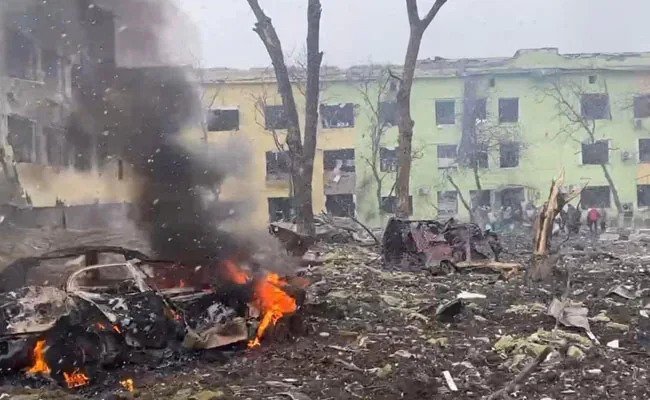
Scenarios for the Future of Nagorno Karabakh  By Benyamin POGHOSYAN, PhD, Chairman, Center for Political and Economic Strategic Studies
By Benyamin POGHOSYAN, PhD, Chairman, Center for Political and Economic Strategic Studies
In late May 2022, Armenia and Azerbaijan established national commissions for border delimitation and demarcation. The two countries are close to signing a deal on the restoration of communications and will soon launch negotiations on elaborating a bilateral agreement. Currently, experts and societies wonder what these developments mean for the future of the self-proclaimed Nagorno Karabakh Republic. Discussions are underway, and different ideas have been put forward. Some Azerbaijani experts started to circulate the possibility of autonomy for Nagorno Karabakh, hinting that Azerbaijan may change its post-2020 war rhetoric, denying the existence of Nagorno Karabakh and claiming that the issue of status was thrown into the dustbin of history. There is a lack of details on what this autonomy could be. READ MORE
- EGF Editor |
Published on EGF: 16.06.2022
| Security
-
Will Azerbaijan become a NATO pawn against Russia in South Caucasus?  By Yeghia TASHJIAN, Beirut-based regional analyst and researcher, columnist, "The Armenian Weekly”
By Yeghia TASHJIAN, Beirut-based regional analyst and researcher, columnist, "The Armenian Weekly”
Despite Azerbaijani President Ilham Aliyev’s adherence to the ideology of pan-Turkism, the former-Soviet republic has long managed to successfully balance its relations between Russia, Turkey, and the west. However, the ‘frozen conflict’ with Armenia over disputed Nagorno-Karabakh territory, and the on-going conflict in Ukraine, have recently tested the limits of this balancing act. In January 2022, as Russia’s military build-up on Ukraine’s border was in full swing, Aliyev visited his counterpart Volodymyr Zelensky in Kyiv and reaffirmed Baku’s support for Ukraine’s territorial integrity. Then, the following month – just two days before Russia announced its ‘special military operation’ in Ukraine – Aliyev was in Moscow signing a treaty of alliance with Russian President Vladimir Putin. READ MORE
- EGF Editor |
Published on EGF: 16.06.2022
| External Relations
-
Peacekeeping in Karabakh Can Learn from the UNOMIG Experience  By Benyamin POGHOSYAN, PhD, Chairman, Center for Political and Economic Strategic Studies
By Benyamin POGHOSYAN, PhD, Chairman, Center for Political and Economic Strategic Studies
As Armenia and Azerbaijan come closer to launching bilateral negotiations over the normalisation of relations, many issues wait for a solution. Currently, the hottest debates are underway regarding the future status of Nagorno Karabakh and the legal modalities of the transit for Armenian and Azerbaijani goods passing each other territories. The war in Ukraine and the complete collapse of Russia – West relations added geopolitical components to the equilibrium. Do we have EU – Russia competition over the mediation process? Are there any disagreements between Brussels and Moscow on promoting lasting peace and stability in the South Caucasus? All these issues are worthy of being discussed and debated. READ MORE
- EGF Editor |
Published on EGF: 09.06.2022
| Security
-
Iran and Turkey Rift Grows Over Dam Construction Projects
 By Fuad SHAHBAZOV, Baku-based independent regional security and defence analyst
By Fuad SHAHBAZOV, Baku-based independent regional security and defence analyst
Tensions between Turkey and Iran were recently rekindled by the latter constructing a dam over transboundary waterways, namely the Aras, Tigris, and Euphrates rivers. Iran is accusing Turkey of intentionally triggering a regional drought and water shortage –– both of which have impacted Iran brutally. Ankara says Iran’s claims are a diversion.
A new round of disagreements between Iran and Turkey began when Iranian Foreign Minister Hossein Amir-Abdollahian criticized Turkey’s dam projects on the Aras and Tigris rivers –– the main transboundary waterways in the region –– citing the threats to water flow in the area and environmental damage to regional states in his speech before Iran’s Parliament on May 10. Abdollahian said he has called on “his Turkish counterpart at least three times over the past months to pay serious attention to the construction of dams on the Aras River.” READ MORE
- EGF Editor |
Published on EGF: 09.06.2022
| External Relations
-
The Perils of Black Sea Security  By Eugene KOGAN, Tbilisi-based defence and security expert
By Eugene KOGAN, Tbilisi-based defence and security expert
The unprovoked Russian invasion of Ukraine on February 24th, 2022 has substantially changed the security situation around the Black Sea. The three NATO member states Bulgaria, Romania, and Turkey have pursued a very different and distinct policy with regard to Russia. Bulgaria, as will be further presented, remains dependent on Russian gas and oil. Despite the recent Russian decision to halt gas exports to Bulgaria over the country’s refusal to pay for supplies in roubles, Bulgaria did not buckle under pressure. Romania maintains a watchful eye after the Russian military operations along the Black Sea coast, in general, and the city of Odessa, in particular. Turkey maintains balanced relations with Russia and Ukraine. READ MORE.
- EGF Editor |
Published on EGF: 09.06.2022
| Security
-
The Impact of the War in Ukraine on Russian-Turkish Relations  By Eugene KOGAN, Tbilisi-based defence and security expert
By Eugene KOGAN, Tbilisi-based defence and security expert
Russian-Turkish relations are in large part based on the personal chemistry, affinity, and trust between Presidents Vladimir Putin and Recep Tayyip Erdoğan. Russia’s invasion of Ukraine has put these personal ties to the test. While President Erdoğan also maintains a close working relationship with Ukrainian President Volodymyr Zelenskyy and Turkish-Ukrainian military ties are strong, it has become clear that Erdoğan is not willing to sacrifice relations with Putin for Zelenskyy’s sake. Moreover, Erdoğan’s efforts to mediate between the two leaders have been either rebuffed or ignored by Putin. As Russia’s war in Ukraine continues, where things go from here is far from certain, but it is worth considering the range of possibilities. READ MORE.
- EGF Editor |
Published on EGF: 01.06.2022
| External Relations
-
Iran Plays Its Cards in the South Caucasus  By Yeghia TASHJIAN, Beirut-based regional analyst and researcher, columnist, "The Armenian Weekly”
By Yeghia TASHJIAN, Beirut-based regional analyst and researcher, columnist, "The Armenian Weekly”
In recent months, Iran has engaged in active foreign policy in the South Caucasus to push its geo-economic interests forward. Meanwhile, Western-led economic sanctions have pushed Russia to realize the significance of the North-South trade route. Iran defused and refreshed its relations with Azerbaijan and by engaging with Armenia it decreased Baku’s political pressure on Yerevan. The following analysis will highlight the recent events and the role Armenia and Azerbaijan play in Iran’s regional trade and economic interests. READ MORE
- EGF Editor |
Published on EGF: 01.06.2022
| External Relations
-
Pashinyan and Aliyev Meet in Brussels Again: What Next  By Benyamin POGHOSYAN, PhD, Chairman, Center for Political and Economic Strategic Studies
By Benyamin POGHOSYAN, PhD, Chairman, Center for Political and Economic Strategic Studies
On May 22, 2022, Armenian Prime Minister Pashinyan and Azerbaijani President Aliyev met in Brussels. The meeting was facilitated by the President of the European Council Charles Michel. For many observers, the May 22 trilateral meeting created a feeling of déjà vu. The same leaders were in Brussels less than two months ago. On April 6, 2022, Michel organized another meeting between Armenian and Azerbaijani leaders with the same sequence and results. Michel met separately with two leaders, then they held hours-long trilateral discussions, and late in the night, he published a statement summarizing the results. On April 6, participants discussed the same issues as on May 22 – the restoration of communications, the start of the border delimitation and demarcation process, and the launch of negotiations to sign a bilateral Armenia-Azerbaijan treaty. READ MORE
- EGF Editor |
Published on EGF: 01.06.2022
| Security
-
A Transitional Arrangement for Karabakh May Be Necessary  By Benyamin POGHOSYAN, PhD, Chairman, Center for Political and Economic Strategic Studies
By Benyamin POGHOSYAN, PhD, Chairman, Center for Political and Economic Strategic Studies
The issue of the status of Nagorno Karabakh cannot be avoided in future discussions on an Armenia-Azerbaijan bilateral peace treaty. One solution is to agree to some transitional arrangement.
The April 6 Brussels meeting between Armenian Prime Minister Nikol Pashinyan and Azerbaijani President Ilham Aliyev gave the Armenia – Azerbaijan negotiations new momentum. The sides agreed to establish a border delimitation and demarcation commission and take steps to launch negotiations over the signature of a bilateral peace treaty. These issues were also agreed upon in principle back in November 2021, when two leaders had a meeting in Sochi facilitated by Russian President Vladimir Putin. READ MORE
- EGF Editor |
Published on EGF: 20.05.2022
| Security
-
Lack of Results in Armenia-Azerbaijan Talks Can Quickly Lead to Renewed Violence
 By Fuad SHAHBAZOV, Baku-based independent regional security and defence analyst
By Fuad SHAHBAZOV, Baku-based independent regional security and defence analyst
On May 12, the Foreign Ministers of Azerbaijan and Armenia held another meeting in Dushanbe, Tajikistan, on the side-lines of the Russia-led Commonwealth of Independent States Ministerial summit, and with the participation of the Russian foreign minister. Although Armenian Foreign Minister Ararat Mirzoyan characterized the meeting as another “productive interaction” between the warring parties, little progress has been made in the peace negotiations between Baku and Yerevan since the 6 April meeting of the leaders of the two countries in Brussels. READ MORE
- EGF Editor |
Published on EGF: 20.05.2022
| Security
-
